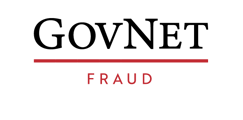In the interconnected world of today, combating fraud and corruption requires a collaborative effort that transcends national borders. International cooperation plays a vital role in addressing these challenges within the UK public sector. This blog post delves into the significance of international collaboration and anti-corruption initiatives in fighting fraud and corruption, including efforts to recover assets and extradite individuals involved in corrupt practices.
The Global Fight Against Corruption
Corruption knows no boundaries, and its repercussions can be felt on a global scale. Recognising this, governments around the world have come together to strengthen cooperation and coordinate efforts to combat corruption. The UK, as a leading advocate for transparency and good governance, actively participates in international initiatives aimed at rooting out corruption and promoting integrity in public sector institutions.
Strengthening Legal Frameworks
International cooperation in combatting fraud and corruption involves the alignment of legal frameworks and the sharing of best practices among countries. Treaties, conventions, and agreements provide the legal basis for cooperation in areas such as asset recovery, extradition, and mutual legal assistance. By harmonising laws and procedures, countries can streamline the process of investigating and prosecuting cross-border corruption cases.
Asset Recovery Efforts
One of the key objectives of international cooperation is the recovery of assets acquired through corrupt practices. Ill-gotten gains often find their way into offshore accounts or foreign jurisdictions, making asset recovery a complex and challenging task. Through mutual legal assistance and collaboration with international partners, the UK pursues the confiscation and repatriation of stolen assets, depriving corrupt individuals of their illicit wealth and sending a strong deterrent message.
Extradition of Offenders
Extradition plays a crucial role in holding individuals accountable for their involvement in corrupt activities. When perpetrators flee abroad to evade justice, extradition treaties allow for their return to the UK to stand trial for their crimes. International cooperation facilitates extradition proceedings by streamlining the extradition process and ensuring the timely transfer of suspects to the jurisdiction where they are wanted for prosecution.
Multi-Stakeholder Partnerships
Effective anti-corruption efforts require the involvement of multiple stakeholders, including governments, law enforcement agencies, international organisations, civil society, and the private sector. Partnerships and collaborations among these stakeholders amplify the impact of anti-corruption initiatives and promote collective action against fraud and corruption. By pooling resources, expertise, and political will, stakeholders can address the root causes of corruption and strengthen institutions to prevent future abuses.
Conclusion
International cooperation is a cornerstone of the UK's efforts to combat fraud and corruption in the public sector. By working closely with international partners, the UK reinforces its commitment to upholding the rule of law, promoting transparency, and safeguarding public resources. Through initiatives such as asset recovery, extradition, and multi-stakeholder partnerships, the UK demonstrates its resolve to root out corruption wherever it occurs, both at home and abroad. In an increasingly interconnected world, collaborative action is essential to build a future free from fraud and corruption.

Nicole Lummis
After a career in Project Management, I realised how important it was for me to pursue a career with a more creative career path. I have a passion for creating engaging digital content whether through written content or the use of image, graphics or videos.




